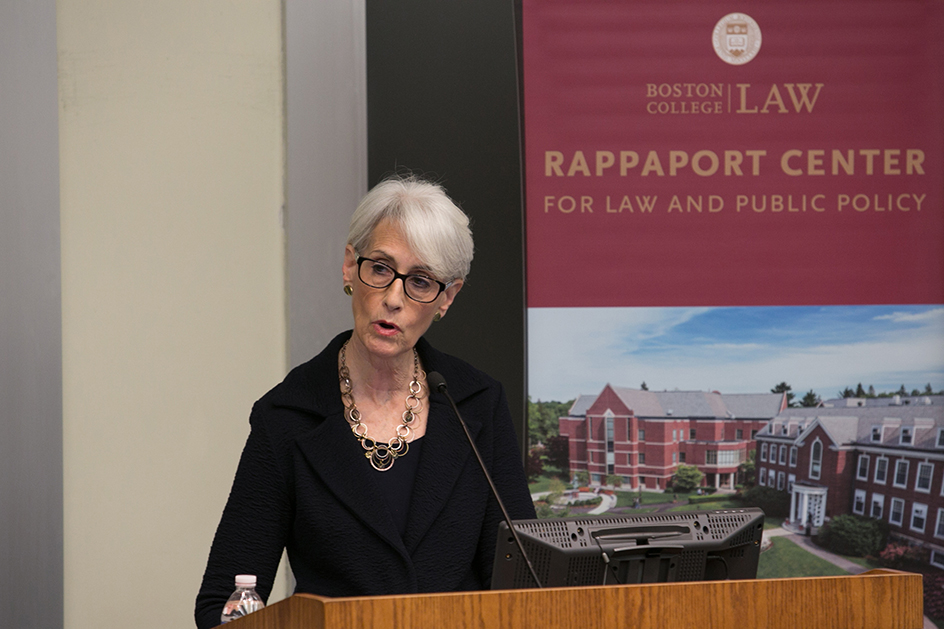At a public lecture held at BC Law on November 9, 2015, Ambassador Wendy Sherman, former Undersecretary of State for Political Affairs and chief American negotiator of the Iran Nuclear Deal, told a spellbound audience how the deal was reached and about the lessons it offers. She was on campus for two days as the Rappaport Center for Law and Policy’s inaugural Distinguished Lecturer, teaching classes and meeting with students and faculty.
Sherman traced events back to the start of Iran’s civilian nuclear program in the 1950s, through the 1979 Iranian revolution and US hostage crisis, and the Iran-Iraq War of the 1980s. By 2002, Iran was clearly planning to build nuclear weapons. The US and major world powers imposed additional sanctions on Iran in 2005 to thwart its plans.
The Obama administration’s 2009 attempts to negotiate a deal with Iran failed. Sanctions intensified. By 2011, Sherman said, Iran had 19,000 nuclear facilities with centrifuges spinning toward weaponization.
When Hassan Rouhani was elected Iran’s president in 2013, the country had the knowledge to develop a nuclear weapon. But its economy was in shambles. Iranian and US diplomats started meeting in secret. A breakthrough came when both parties agreed that Iran could never have a nuclear weapon, but could have a civil nuclear program, provided it was monitored. They agreed to a Joint Plan of Action. Britain, China, France, Germany, and Russia were invited to the table, and the seven nations started working to fill in the blanks.
The deal was reached on July 14, 2015, after strenuous negotiations. Sherman said negotiations succeeded because all the parties:
- Never wavered from the main objective.
- Stayed focused.
- Had the political will to complete the deal.
- Understood each other’s interests.
- Found alternatives to a deal unpalatable.
- Had leverage.
- Had stamina.
- Had excellent intelligence, communication, and consulting.
- Did not make the negotiations about trust.
- Compromised something, but not everything.
Sherman witnessed Secretary of State John Kerry ’76 address the ministers following their historic accomplishment. He spoke with emotion of returning from Vietnam War, vowing to make peace his life’s work. That was why, he said, he fought so hard for this deal.
The room was still. Then everyone applauded—including the Iranians.
(Photographs Reba Soldhana)


